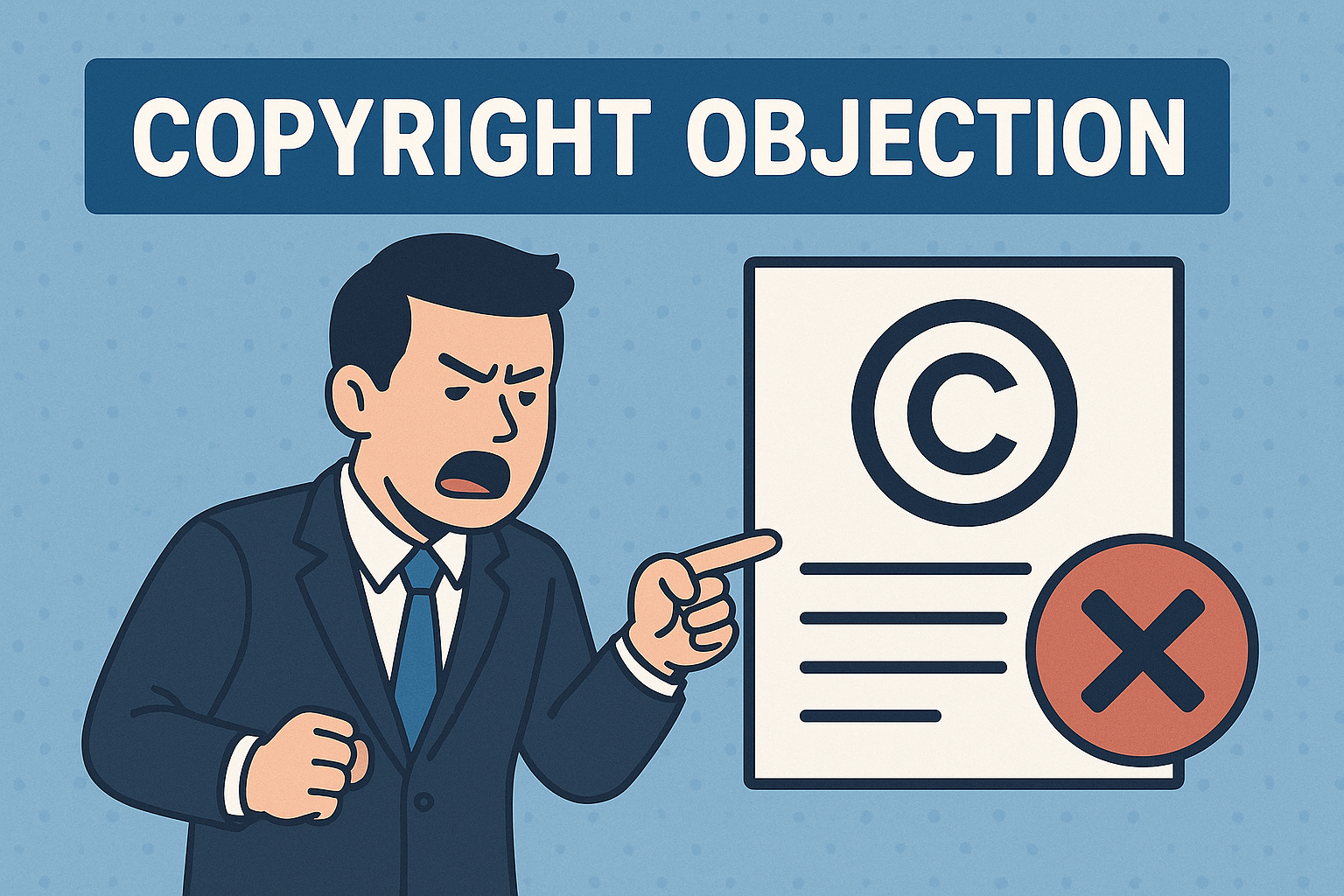Copyright Objection for Startups: Easy Setup and Compliance (2025 Humane Guide)
Protecting your originality isn’t just for big brands—startups need copyright defense from day one. The copyright objection process in India can feel daunting, but it’s a powerful tool to safeguard your ideas, brand assets, and creative work with just a few easy steps. Here’s a humane, step-by-step guide on how startups can set up and manage copyright objections for seamless compliance—and stay ahead of trouble before it starts.
Why Should Startups Take Copyright Objections Seriously?
-
Original Content is Startup Gold: Your pitch decks, websites, app interfaces, course material, blog posts, logos, and code are brand assets. Defending them is part of building a strong, valuable business.
-
Copycats Move Fast: In a digital world, your work can be reused instantly—without your consent or credit.
-
Compliance Builds Credibility: Investors, big clients, and marketplaces look for clean IP records and readiness to defend your creations.
Easy Setup: How Startups Can Be Copyright-Ready
1. Register Your Original Works Early
-
Submit your key creative assets (content, logos, manuals, software, audio, video) at copyright.gov.in.
-
Digital process means you just scan, upload, and pay the government fee (as low as ₹500 per work).
2. Monitor & Stay Alert
-
Check your Diary Number and monitor the public notice period (30 days after filing).
-
Set Google Alerts or use IP-watch tools to spot potential infringement or conflicting registrations.
3. Understand the Objection Window
-
Anyone can file an objection within 30 days after your work is published in the copyright registry.
-
Likewise, watch for applications that copy or overlap with your work, so you can raise objections if needed.
How to File or Respond to a Copyright Objection
If Someone Objects To Your Work:
-
Get Notified: The Registrar will email you or update your dashboard.
-
Gather Your Proof: Dated drafts, code commits, design files, original contracts, communications with teams, etc.
-
Draft a Reply: Write a clear, factual response directly addressing the objection points. Attach supporting documents.
-
File Digitally: Upload via the official portal within the 30-day window.
-
Prepare for a Hearing: Most matters are settled in writing, but some may need a virtual hearing.
If You Need to Object to Someone Else’s Filing:
-
Draft a Formal Objection: Clearly state why the new work infringes on your copyright, with references to similarities and your prior creation.
-
Attach Solid Evidence: Registration certificates, original files, dated screenshots, and emails.
-
Submit On-Time: File through the portal within 30 days of the Diary Number issue.
What Documents Should You Have Ready?
-
Registration or application receipts for your work
-
Dated drafts, original files, code repositories
-
Contracts or emails proving collaboration or originality
-
Government-issued IDs and company documents (for your startup)
-
Power of Attorney (if using a consultant or law firm)
Humane Pro Tips for Startups
-
Register major assets as early as possible. Don’t wait until you spot a copycat to take action.
-
Stay organized: Store all creative proofs and filings—cloud backups work best.
-
Respond on time: Missing deadlines almost always leads to rejection or lost rights.
-
Train your team: Make everyone aware of IP basics and the value of original work (even interns or freelancers can cause accidental risks).
-
Seek expert help for tricky cases: An affordable consultation with an IP attorney now can prevent years of trouble.
Compliance = Growth
-
Startups that proactively manage copyright and resolve objections quickly enjoy faster funding, smoother product launches, and stronger partnerships.
-
Clean IP compliance means confidence at every investor meeting—and peace of mind.
Visit - https://www.filingworld.in/
#filingworld
